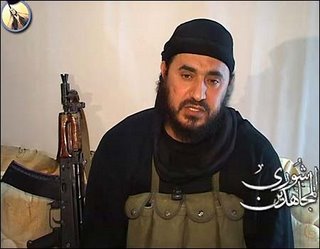Iraq Watch: June 28, 2006
Insurgent Groups Make Contact With Government
At least 11 insurgent groups in Iraq have made contact with the government and have reportedly offered to halt attacks if a list of demands are met.
This announcement follows a 24-point reconciliation plan issued Sunday by Prime Minister Nouri al-Maliki. One part of the plan called for an amnesty for insurgents who have not been involved in acts of "terrorism."
The 11 militant groups mentioned are predominately nationalistic in ideology and comprised mostly of former members of former leader Saddam Hussein's outlawed Baath Party. Eight of the Sunni groups have joined a coalition under the banner of the 1920 Revolution Brigades in order to make contact with the Iraqi government.
According to the AP, one of the guerillas' key demands is that an agreement be made on a two-year timetable for the complete withdrawal of foreign forces from Iraq.
Noticeably missing from the list of militant groups are those hailing from the religious branch of the insurgency. Groups like Ansar al-Sunna and the Islamic Army in Iraq are not expected to inquire into the prime minister's amnesty offer.
The Mujahideen Shura Council, a militant umbrella organization made up of eight groups including al-Qaida in Iraq, emphatically rejected the offer soon after it was presented.
In violence Wednesday, a car bomb exploded amongst a crowd of day laborers in the volatile city of Baqouba, north of Baghdad, killing at least three people and wounding 12.
Meanwhile, the U.S. military announced the deaths of two U.S. service members Wednesday. A MND-B soldier was killed late yesterday by a roadside bomb explosion north of the capital while a Marine assigned to the Regimental Combat Team 5 died from wounds sustained "due to enemy action" in Anbar province.

